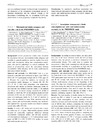Identificador persistente para citar o vincular este elemento:
https://accedacris.ulpgc.es/jspui/handle/10553/41922
| Título: | P123-F. Association between dairy foods consumption and total and cardiovascular mortality in the PREDIMED study | Autores/as: | Ortiz-Andrellucchi, A. Sanchez-Villegas, A. Henriquez-Sanchez, P. Estruch, R. Martínez-González, M. A. Corella, D. Salas Salvado, J. Fito, M. Schroder, H. Toledo, E. Lamuela-Raventos, R. M. Ros, E. Aros, F. Fiol, M. Lapetra, J. Munoz, M. A. Gómez Gracía, E. Tur, J. Pinto, X. Ruíz-Gutiérrez, V. Portillo-Baquedano, M. P. Serra-Majem, Ll PREDIMED Study Investigators |
Clasificación UNESCO: | 3206 Ciencias de la nutrición | Fecha de publicación: | 2018 | Publicación seriada: | European journal of clinical investigation (Print) | Conferencia: | 52nd Annual Scientific Meeting of the European Society for Clinical Investigation “Precision medicine for healthy ageing”, Barcelona, Spain, 30th May – 1st June 2018 | Resumen: | Background: According to several studies, the dairy products, one of the most consumed foods and rich in many nutrients, does not present a conclusive relationship with cardiovascular disease. This study aims to examine the association of dairy foods consumption with all-cause and cardiovascular mortality in a population at high risk for cardiovascular disease included in the PREDIMED study. Material and methods: This study corresponds to a prospective and observational cohort study carried out in the framework of the clinical trial PREDIMED. A total of 7447 participants aged between 55 and 80 for men and 60 and 80 for women with cardiovascular risk factors, but without cardiovascular disease at the beginning of the study. The data were obtained from questionnaires and/or interviews during the study follow-up period. Four different Cox regression models were used to assess the risks of mortality as a function of the quartiles of intake of dairy products, estimating reasons of risk (HR, 95% CI). Results: The total number of deaths during the follow-up period was 292, of which 72 were due to cardiovascular causes. Total consumption of dairy products was not related to all-cause and cardiovascular mortality. Consumption of full-fat dairy products, comparing the highest and the lowest intakes, was associated with an increased risk of 67% of all-cause mortality (HR: 1·67, 95% CI: 1·18–2·37) and a 137% of cardiovascular mortality (HR: 2·37, 95% CI: 1·23–4·57). Intake of low-fat dairy products, comparing the highest with the lowest quartile of intake, was associated with a risk reduction of 37% of all-cause mortality (HR: 0·63, 95% CI: 0·45–0·88) and a 59% of cardiovascular mortality (HR: 0·41; 95% CI: 0·21–0·80). Conclusions: Intake of full-fat dairy products was associated with an increase in all-cause and CVD mortality, while the low-fat dairy consumption was related to a protective association. | URI: | https://accedacris.ulpgc.es/handle/10553/41922 | ISSN: | 0014-2972 | DOI: | 10.1111/eci.12926 | Fuente: | European Journal Of Clinical Investigation [ISSN 0014-2972], v. 48 sup. 1, p. 215, Abstract P123-F, (Junio 2018) |
| Colección: | Póster de congreso |
Visitas
70
actualizado el 11-ene-2026
Descargas
83
actualizado el 11-ene-2026
Google ScholarTM
Verifica
Altmetric
Comparte
Exporta metadatos
Los elementos en ULPGC accedaCRIS están protegidos por derechos de autor con todos los derechos reservados, a menos que se indique lo contrario.
